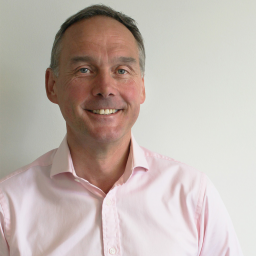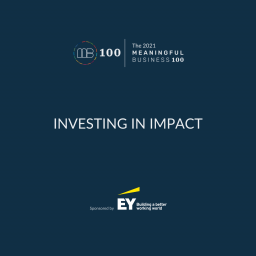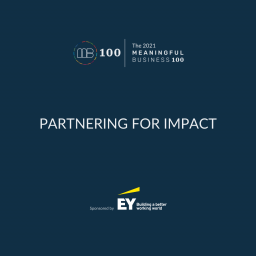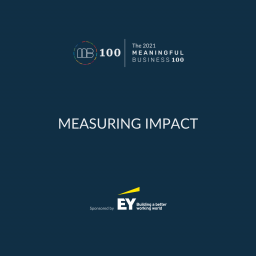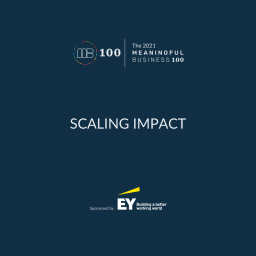Meaningful Business (MB:) How has the fundraising landscape changed over the last year?
Alex Pitt (AP:) While there is a lot of liquidity in the market, we have seen an increased focus on sustainable investing and a realisation that these problems have to be solved jointly.
Conversations around solving big social and environmental challenges have come to the forefront. A lot of people have been spending more time at home with their loved ones, and I think having time to have these conversations within families has meant that suddenly we see a lot of family offices now deploying even more capital towards sustainable investments.
On the other side of that, given the uncertainty of the pandemic, some institutional investors may hold off on investments if they have taken a big hit on their portfolio, for example, in commercial real estate.
MB: Have your focus areas, or target industries, changed?
AP: We see so many brilliant entrepreneurs tackling challenges across many different areas.
In terms of where we’re investing, the focus areas haven’t really changed. We are a broad based impact fund manager operating at pre-seed to Series A stage, and we like to invest across different themes. We are currently investing from our European fund in various areas: from elderly care to sustainable food and mental health.
The reason why investors come to us is also wide ranging. Some want to invest across different areas, whereas others will be more passionate about something specific. We’re starting to think about a later stage Growth Fund, which would probably be more focused around two or three core themes.
MB: What has been your approach to meeting and investing in entrepreneurs remotely?
AP: In this pandemic, it has been the only alternative! We have now made several investments into companies where we have never met the founders in person – which a year and a half ago would have been the most bizarre thing. The reality of the world we’re living in is we have to do it that way. I would definitely prefer to have at least one breakfast, lunch or dinner with the founders before we invest!
To make up for it, we do a little bit more dialogue over video just because there’s no in-person interaction. But in terms of deploying capital, it has been perfectly fine.
MB: What tips would you give to an entrepreneur when pitching remotely?
AP: Even traditionally, we used to see entrepreneurs reach out to investors without much research and due diligence, and then unfortunately spam the ecosystem to raise money.
The most compelling entrepreneurs that end up in our inboxes are the ones that have clearly taken a lot of time to think about how they want to approach us, who their connection to us is and why they want Mustard Seed to be invested in their company.
There is the law of numbers – you have to have a lot of conversations as a founder. But the most outstanding have really thought hard about what kind of investor they want to have, and why they want an investor who cares about impact integrity and measurement of outcomes.
MB: Are there alternative avenues that entrepreneurs can look to to raise capital right now?
AP: There are definitely alternatives out there, and it depends what stage the company is at. Before that, the founders should first take a step back and evaluate – do I need and want to raise money in the first place? And for some companies, it may not be the right answer. They can bootstrap it, and the founder will end up with 100% of the business – as opposed to 10% when they end up selling it.
We are an equity investor in Europe. When it comes to investing in the UK, there are benefits along with the e-tax breaks that the entrepreneur can receive.
There are individual angel investors, but that can be very time consuming and exhausting for founders to have so many individual conversations. So angel networks are an efficient option. Grant funding is available through Innovate UK, and previously through Horizon 2020 before the UK left the EU. For the EU, there are pitch competitions and prizes. There are also several corporates that put between £20-100k towards particular themes that they care about.
And then there are accelerators. With some caveats. I often think that the equity those accelerators are taking is a very substantial amount. So founders need to think very carefully about whether that accelerator is going to add significant value. However, I know that there are some that really do.
Once the company gets to the right stage, which is typically Series A, Series B and beyond, then they can look at more institutional investors, family offices, institutions and corporate VCs.
MB: How can start-ups make better use of limited resources to fundraise over the next 12 months?
AP: Fundraising is highly time consuming, and unfortunately I don’t have a magic answer to that.
For better or worse, the power of your network can play an important role. If the founder can leverage personal networks to raise capital, we always find it impressive. If a founder comes to us with 100-150,000 of committed capital from their own personal and professional networks, it’s a good sign, especially for someone in their 30s, 40s or 50s who has had meaningful professional experience. I think it would raise a little bit of a red flag to us if someone couldn’t raise anything from people they have previously worked with.
For someone in their early to mid 20s, we would understand if they didn’t have large professional networks to leverage and hence are going to friends and family initially to raise capital. It also makes a lot of sense to leverage seed enterprise investment schemes and benefits.
Lastly, I would advise using your concentric circles of network as your existing early backers, including supporters and other individuals, and then growing it out from there.
Some companies have employed an advisor to help them with capital raising which can also be quite successful, particularly when they get to Series A funding and beyond.
MB: Will we see a ripple effect of the pandemic on capital raising over the coming years?
AP: I’m sure we will see a ripple effect when we are able to look back in three to four year’s time.
I think the most profound impact of the pandemic has been in the way that it’s turned how we live and work on its head. I think that any kind of business that is supportive of this new world that we are living in, whether it’s around remote medicine, or e-commerce or technical solutions, will thrive. Correspondingly, the companies that have a bricks-and-mortar retail focus or a commercial real estate focus will struggle if their core business remains the same. I think all those companies are completely rethinking their business models now!
___
to join the ‘Mission Possible’ community of purpose-driven entrepreneurs, apply to become a member of meaningful business here






